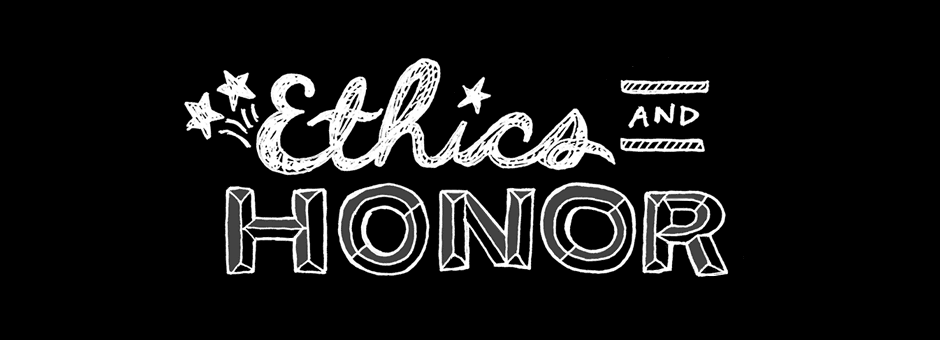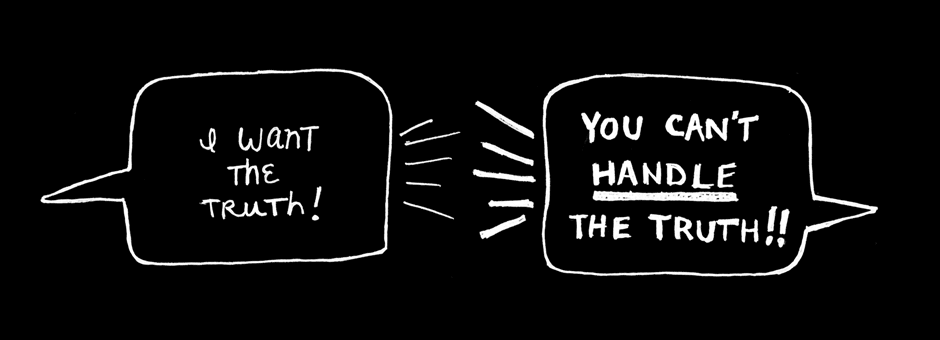Ethics and Honor in the Workplace

If you’re a regular reader of the Viget blogs, then you already have a sense for the close-knit, family atmosphere we’ve fostered here at Viget. Not coincidentally, I believe, we have high retention rates and continue to maintain strong relationships with Viget Alumni who depart for new adventures (and who sometimes return) as a result of this culture. While we blog often about the fun team-building activities we sponsor (like broomball, curling, and snow tubing last month) that reinforce this tight-knit culture, there is another facet of Viget culture that unites us that is rarely discussed outside of Viget: ethics and honor in the workplace.
For context, I started my career years ago as a civilian contractor for the US Navy. Like everyone else who has worked on Government contracts, I was required to affirm annually that I had read and would comply with the Procurement Integrity Act. I’ve endured background checks, drug tests, polygraphs, and DIS interviews. And, for ten years, I worked alongside military personnel who epitomized honor and integrity. These principles weren’t empty words during this stage of my career: these rules of conduct were frequently referenced in everyday conversations, tales from the battlefield, and how everyone treated one another.
Here at Viget, I have HR responsibilities, run payroll, administer benefits, participate in pricing and proposal development, and negotiate contracts -- nearly everything I do requires strict adherence to ethical standards and I find myself talking about ethics with others here quite frequently. Conducting oneself honorably and with integrity underlies so much of what we do and I wonder if our focus on it is unusual today. I am disheartened every time I read about another scandal at a publicly-traded company, non-profit, or government agency where greed or a lapse of ethics contribute to widespread fraud, theft, or corruption. And, let’s not talk about the most disappointing role model in recent memory.

Image Credits: Peyton Crump
At Viget, we don’t have a single, required “ethics” presentation that everyone is forced to sit through. I know that’s the routine at some workplaces. Our approach is much more organic -- and, I believe, authentic. During the first week on the job, every new person at Viget reads our Employee Handbook and sits down for a 1-on-1 orientation with our CEO. In each case, the core message emphasizes many aspects of ethical behavior: time charging, professional conduct, confidentiality, and our code of ethics are just some examples. This establishes the baseline for subsequent direction and coaching from managers over time on specific topics. Topics within our design group may include the purchase of software and font licenses, what work can be included in personal online portfolios, how to present and defend your work without being confrontational or argumentative, or how we prefer to leverage social media to promote Viget’s work.
Within the Project Management group, we talk about ethics when setting client expectations, when needing to deliver some bad news, when reviewing invoices, and when helping our clients craft original copy, for example. Our business development team talks about ethics when evaluating opportunities from potential clients. Is the client team trustworthy? Does their mission conflict with our values? We don't just look at the bottom line opportunity. Even while we're selling our services, we're trying to get to know every prospective client. Since we intend to only work with organizations and people who share our commitment to ethics, walking away from opportunities that don't feel right is always an easy decision.
Within our Recruiting team, we talk about how to attract talent without directly poaching from friendly competitors (that’s just not our style). We develop templates and guidelines to fairly evaluate candidates and we keep up with industry salary metrics to ensure that we are paying our staff competitively. When we evaluate candidates, we also take notice and view as red flags:
- When someone bad-mouths a former employer, client, or co-worker
- When someone shares or offers to share confidential information
- When someone embellishes their resume or qualifications.
Tellingly, one question on the standard form completed by all interviewers asks whether the evaluator believes the candidate is a person of integrity.
Those of us who work at Viget are proud of the collective work that we produce. But, as importantly, we’re proud to work alongside people who share the same set of values and the same commitment to honor and integrity.
